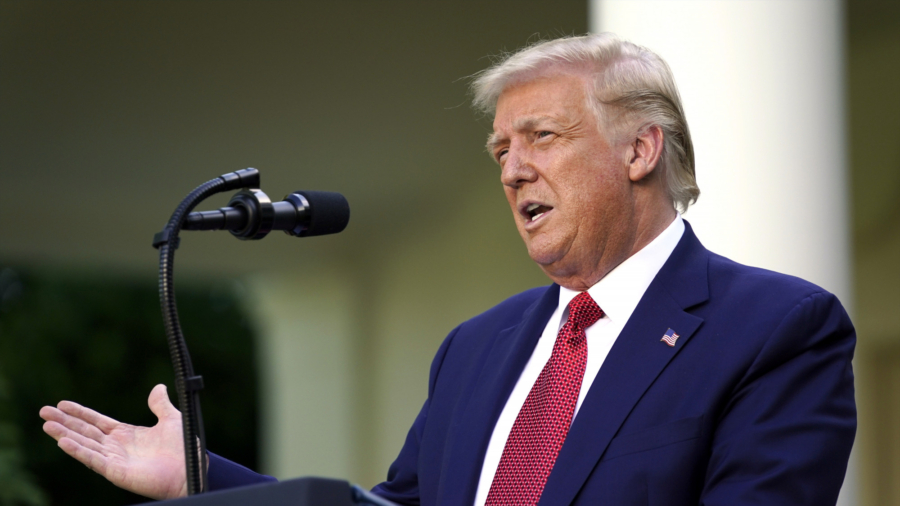U.S. President Donald Trump on July 14 signed into law a bill that would impose sanctions on Chinese officials and entities responsible for extinguishing Hong Kong’s freedoms, as well as banks that do business with them.
He also signed an executive order to end the United States’ preferential treatment of Hong Kong. The measures, Trump said, were enacted to “hold China accountable for its oppressive actions against the people of Hong Kong.”
Trump described Beijing’s tightening control over the city as “not a good situation.” The communist regime recently imposed a national security law over Hong Kong, which critics say marks the end of the city’s autonomy.
“Their freedom has been taken away, their rights have been taken away. And with it goes Hong Kong, in my opinion, because it will no longer be able to compete with free markets,” Trump said. “A lot of people will be leaving Hong Kong I suspect.”
Congress in early July unanimously voted for the Hong Kong Autonomy Act that would impose sanctions on a broad range of people and entities tied to the Chinese Communist Party’s subversion of the city’s autonomy.
In May, Trump announced the administration would start the process of stripping Hong Kong of its special trading privileges with the United States, deeming the city no longer sufficiently autonomous from mainland China. Since then, it has limited defense equipment exports to the city, and said it would impose visa restrictions on Chinese Communist Party officials involved in suppressing freedoms and rights in Hong Kong, as well as their family members.
Beijing’s new security law has brought Hong Kong under firmer authoritarian control from Beijing. The legislation imposes a maximum of life imprisonment for acts deemed by Beijing as subversion, secession, terrorism, and collusion with foreign forces. The regime has also set up a national security office in the city to oversee its enforcement.
Since the law came into effect two weeks ago, books by some pro-democracy activists and politicians have been removed from public libraries; the protest slogan “Liberate Hong Kong, Revolution of Our Times” has been deemed illegal; activists have disbanded their organizations or fled the city; and shops have removed protest-themed products and decorations.
Trump’s announcement comes as the administration takes a tougher stance against the Chinese regime on a range of issues, from its human rights abuses in the region of Xinjiang to its military aggression in the South China Sea.
The United States on July 13 formally declared that it opposed nearly all of Beijing’s territorial claims in the South China Sea. The regime has increased its presence in the strategic region by building military outposts on artificial islands. It has also deployed coast guard ships and Chinese fishing boats to intimidate foreign vessels and block access to waterways.
Last week, Washington announced sanctions on several Chinese officials, including a high-ranking member of the Chinese Communist Party involved in rights abuses against ethnic minorities in the region of Xinjiang. An estimated one million Uyghur Muslims and other Muslim minorities are detained within internment camps, as part of the regime’s purported clampdown on what it calls “extremism.”
From The Epoch Times

